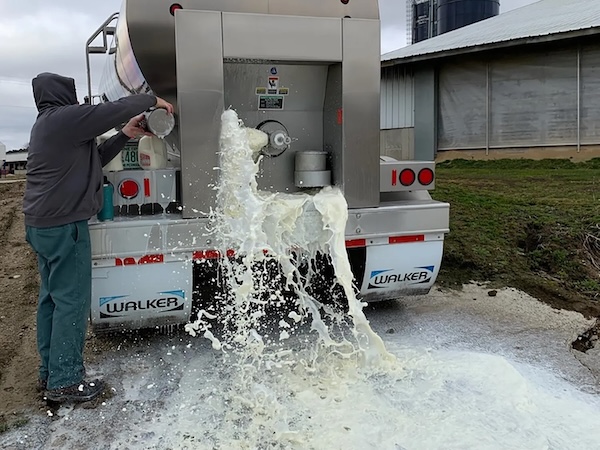Two professors from the University of Wisconsin-Platteville have just received a US patent for their novel technology that turns spoiled milk into biodegradable plastic. With ongoing backing from the Dairy Innovation Hub, the process converts milk proteins like casein and whey into a sustainable 3D printing material that can replace petroleum-based plastics.
Dr. John Obielodan and Dr. Joseph Wu say the idea was sparked during the Covid 19 pandemic when dairy farmers were forced to dump hundreds of gallons of unused milk. The pair began exploring alternative uses for dairy proteins. “We asked ourselves, ‘Why can’t this milk, instead of being wasted, be turned into something valuable?’” said Obielodan, professor and chair of the Department of Mechanical and Industrial Engineering.
As Obielodan explains, many single-use plastics end up in oceans and our wider food chain, yet we still don’t fully understand the impacts on human health. “Biomaterials offer a more sustainable alternative, turning natural and waste materials into useful polymers with fewer environmental and health risks.”
The first challenge for the duo was determining which milk proteins to use, and in what form. “We started by creating our own proteins, then tested some commercially available ones before finding the one that gave the best results. These proteins were used with existing 3D printing materials.”
Another big challenge was finding the right mix of ingredients to create a polymer flexible yet strong enough to give the desired results. The professors employed chemistry and mechanical engineering students to help set up the experiments, giving them valuable insights as to what goes into creating a brand new material.
Wu and Obielodan say their achievement wouldn’t have been possible without support from the Dairy Innovation Hub. For those not familiar, the “Hub” is a state-funded initiative in Wisconsin that connects three University of Wisconsin campuses — UWPlatteville, UW-Madison and UWRiver Falls — to support research, teaching and outreach related to dairy. The Hub provided $50,000 to get the research off the ground. Additional funding along the way raised total support from the Hub to approximately $180,000. The project is also one of the very first grants ever supported by the Hub.
Wu calls the innovation a powerful example of circular economy thinking. “In my classes, I tell students to learn the concepts and then connect the dots,” Wu explains. “No one saw it coming—3D printing and dairy protein merging into a revolutionary material. It’s all about making unexpected connections, ones that could not only advance the 3D printing industry but also support Wisconsin’s dairy farmers.”
The next step for the professors innovation will involve further perfecting the technology before transferring the intellectual property to industry partners for commercialization. “Looking ahead, a variety of products could be made using proteins derived from milk,” declared Obielodan. “From 3D printing filaments to other engineered materials, the possibilities are wide-ranging.” Learn more at UW-Platt. (Sources: University of Wisconsin, Dairy Innovation Hub)







